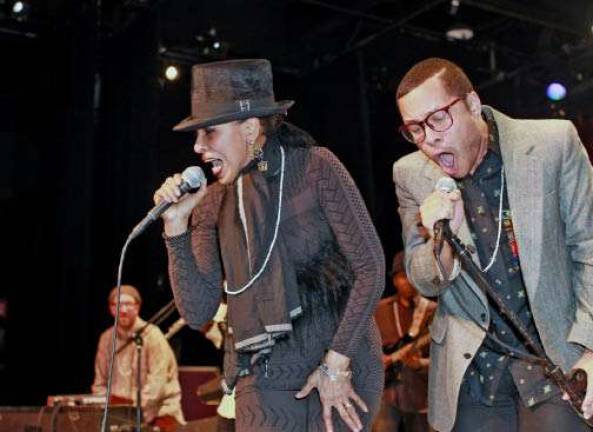Orchestral Rock

Digging the deep roots of rock and roll
Until musicians Greg Tate and Vernon Reid and producer Konda Mason established the Black Rock Coalition in New York in 1985 the African American origins of rock music and its roots in the music of Bessie Smith, Sister Rosetta Tharpe, Little Richard, Chuck Berry, and Muddy Waters were almost completely overlooked. Frustrated with mainstream America's dismissal of black rock as unsavory "race" music, they set out to show the world just how thrilling, complex and gorgeous it could be. From the beginning and still today, its energy feeds today off New York's African American community, much of it based in Manhattan.
"There's no question the situation has improved," says Harlem-born, BRC member Carl Hancock Rux, the poet, author, actor, teacher and musician, in a recent phone conversation. "But there's still a lot of room for improvement. There's always been inherent racism in the overlooking of African Americans as the source of rock."
No more convincing argument could be made for African American rock brilliance than one of the Black Rock Coalition Orchestra's unforgettable concerts, mixing funk, R and B, hip hop, soul and jazz. Rux joins a star-studded line up when it performs at the Michael Schimmel Center for the Artsat Pace University on November 23. Under the musical direction of Toshi Reagon, the group features Grammy and OBIE award winners as well as artists who have been inducted into the Rhythm and Blues Foundation Hall of Fame. They include Nona Hendryx,Corey GloverofLiving Colour, Marc Anthony ThompsonakaChocolate Genius andTamar-kali, among many others.
"The ideology built around our music called it crude, rude, and promoting of sexuality," Rux says. The Civil Rights movement and cultural rebellions of the '60s began to gradually change that. Still, it took the united organization of the BRC to really get people to sit up and take notice of what had been going on. "It burst to life here," he says, "because New York represents culture and urbanity. The city has a history of musical invention. The founders grew up in the Civil Rights movement: they knew about the struggles and the taboos connected with black rock. Tired of the shame associated with the music, they reclaimed it. With the BRC, a page was turned."
BRC Orchestra plays Nov. 23 at The Michael Schimmel Center for the Arts at Pace University